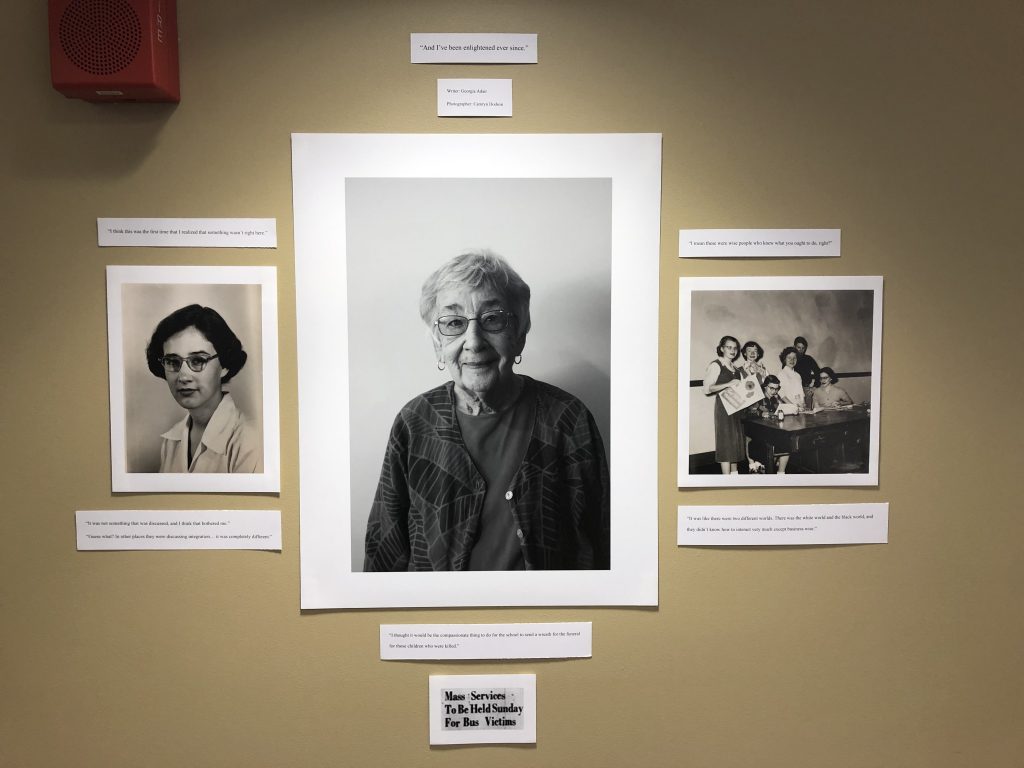CTZN 410
The provided definition of a citizen leader is this: a citizen leader is someone who is academically and personally transformed by knowledge of fundamental modes of inquiry and informed civic engagement and who then applies the virtues of a Longwood education to serve and transform communities. Modes of inquiry refer to the ways in which people identify and explore questions of interest. They are the systems and methods by which humans create, construe, and convey information. Through my experiences in CTZN 410: Seeing the Past & the Prince Edward StoryTellers’ Magazine, I developed characteristics of a citizen leader. This course focused on the creation of a magazine. The magazine project was a collaboration between the Moton Museum and Longwood University. Each magazine has several stories from those who were locked out of schools between 1959 and 1964. Students were assigned a partner and a storyteller and then were told to uncover the story this individual had in Farmville during these years. Partners spent countless meetings with their storyteller conducting interviews and taking photographs, researching the historical context, finding archival information, and revising stories until they were able to tell a story that served the purpose of the storyteller and the magazine. The purpose of this magazine is to turn the narrative of the Civil Rights Movement from a Black story to an American story; everyone felt the impact of the school closings regardless of race, SES, gender, etc. in not only Prince Edward County, but around the nation. A magazine is a mode of information that is easily spreadable from people to people, counties to counties, and states to states. It was our job to inform the community about the events that took place in Farmville for many reasons. Some individuals may not be aware of the events that took place in Farmville during 1959 and 1964, so the magazine is a way to reach these people so that they can be more knowledgeable of the community and American history enough to possibly make informed decisions in the future. Racial relations have touched every system in America so discussing time periods like this one where there were racial wars in education, politics, the way of living, etc. can expose or explain the inequalities of present issues. Prince Edward County is a prime example of how decisions based on racial relations made in history still impact the community today. Telling the stories of the people that experienced the consequences of these decisions makes history real. It is easy to think of racial issues as 100s of years ago because of the outdated documented resources available. This project has made me deeply reflect on past decisions, the long lasting effects of those decisions, and what role I can play in helping to lessen those effects. Of course this project revealed the inequalities and tragic historical past of America in terms of racial divides, but it also uncovered so many ways in which these inequalities are still present, just a little more hidden. For example, in terms of education, I learned a great deal about the fight to have integration, equal funding, equal resources, and equal facilities of access in Prince Edward County during the mid 1900s, but I also had the opportunity to reflect on how people are still experiencing this today. There are many schools still “segregated” in Virginia because of the way district lines are drawn, there is still an issue with unequal funding because funding is based on local taxes which in turn leads to unequal resources and facilities. The information learned while publishing this magazine project has changed the way I look at social and political issues. My hope is that the information we published will have the same effect on the readers. I have taken the new information I have on the civic issue of negative racial relations, created a product that spreads awareness on the issue, and have formed a new passion to look for historical occurrences happening subtly within systems now. It is now my job moving forward to identify those civic issues and fight against them. In these ways, I am acting as a citizen leader and I will continue to better the characteristics I need to be one.
I had the opportunity to present my work and a trial publication of the magazine in a pop-up presentation at Symposium day. Below is an image of my presentation. The final publication of the magazine project will be available on the Moton Museum website soon!
(Spring 2022)

No Responses yet